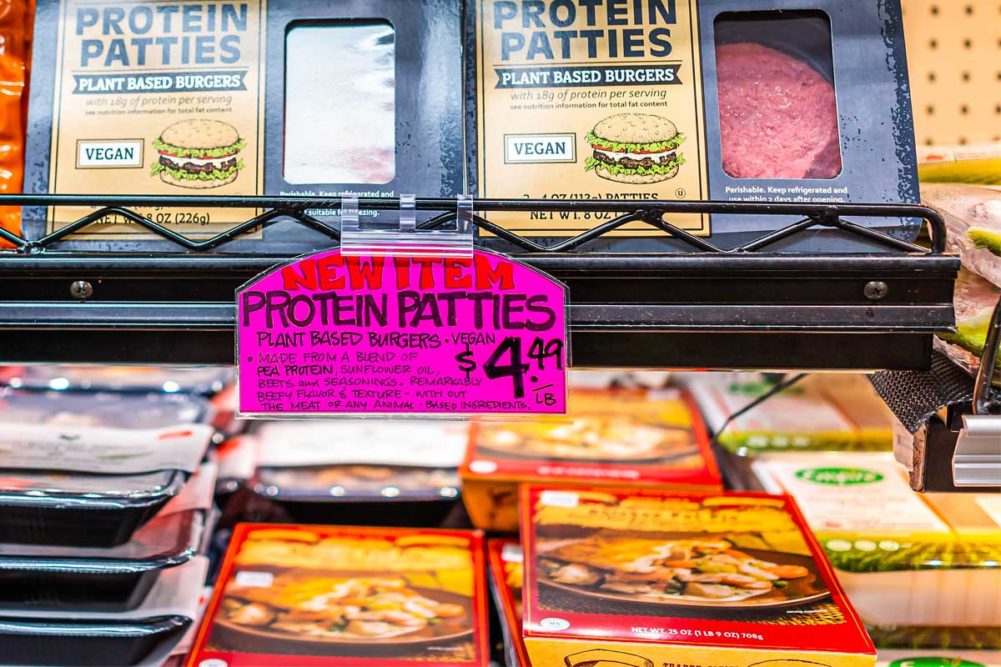CHICAGO — A handful of plant-based categories are seeing an uptick in adoption, but a much larger portion are seeing declines in penetration, according to data from the Brightfield Group.
The company’s consumer insights platform found the portion of shoppers purchasing plant-based creamers fell 25% in the second quarter of 2022, while those purchasing plant-based sausage and fish alternatives fell 17%. Penetration also declined for dairy-free yogurt (down 9%), dairy-free cheese (down 8%), burger alternatives (down 7%), chicken alternatives (down 6%) and dairy-free ice cream (down 3%). Only plant-based frozen meals and plant-based bacon saw modest gains, up 5% and 1%, respectively.
Economic pressures and higher grocery bills are pushing shoppers toward conventional animal-based products, said Bethany Gomez, managing director at Brightfield.
“Part of it has to do with pricing and inflation and people making difficult decisions at the register,” she said. “The most expensive products saw the steepest declines. Even if you’re not giving up on plant-based completely, you may be sticking with black beans instead of meat alternatives to cut corners on your grocery bill.”
Price isn’t the only factor driving declines. The category’s health and environmental halos are beginning to lose their shine as more consumers associate plant-based products with complicated labels full of unfamiliar ingredients.
“People report using plant-based because they believe it is better for their health and better for the planet, but we’ve really seen those sentiments contract among many consumer segments,” Gomez said.
Mainstream consumers who aren’t deeply engaged with health and sustainability are questioning plant-based credentials. Belief in the category’s environmental halo is declining among its core users, too. Brightfield uses the term “trendy enthusiasts” to describe high-income millennials that are the backbone of the plant-based market. While most of those shoppers are still on board with the movement, the portion that believe plant-based products are better for the environment fell by 7% over the past three quarters.
“We’ve also seen more conversations on social media acknowledging that a lot of plant-based products are heavily processed, and that’s influencing perceptions about how much better they actually are for you,” Gomez said.
Trendy enthusiasts are increasing their usage across several categories, including plant-based cheese and plant-based meat. If flexitarian lifestyles continue trending downward among mainstream shoppers, those gains won’t offset a broader shift away from plant-based products, Gomez said.
“It’s not going to be enough to sustain the level of sales growth that companies have been putting up to date,” she said. “Unless penetration continues to grow instead of contract, they’re going to be limited to marketing to a much smaller base.”
Minimizing the cost differential between conventional and plant-based products should be a key area of focus, she said. Regaining those health and sustainability halos could be more important for the category’s long-term success.
“If you don’t want to revert to relying on vegetarians and people with dairy allergies, you’re going to need to hype up your health and environmental claims,” Gomez said. “It’s critical for companies to solidify those beliefs and behaviors before they slip away. That will make the difference between this being a fundamental change in society versus a flash-in-the-pan trend.”



